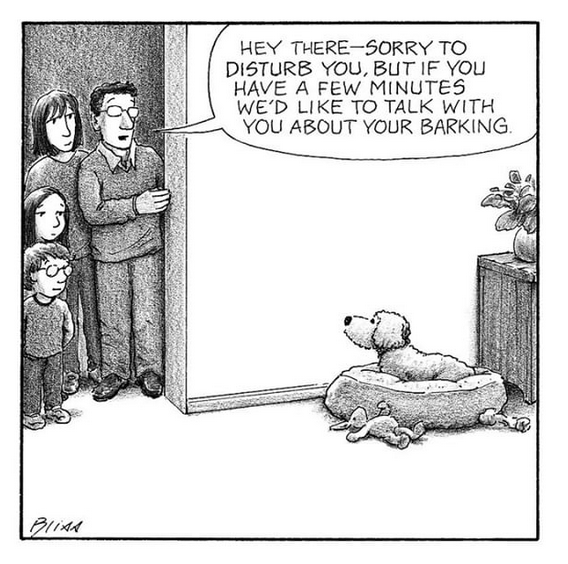
Many of us work hard to say the ‘right’ things to our loved ones, especially our children. Often however, our deeper feelings come out in the tone of voice we use or our facial expressions. This creates a problem for the receiver of our message: what is being said does not align with the emotions being communicated. This misalignment creates potential for miscommunication.
It doesn’t matter how young your children are for them to notice your words vs. your tone. Our children respond to our non-verbal communication first (tone of voice, facial expressions and physical actions) thereby learning to decipher verbal communication far earlier than most parents are aware. When our babies are newborns, our words are far more likely to match our tone, mostly because we subconsciously assume they do not understand what we are saying. As they become toddlers and require more verbal direction, we need to become more strategic with our words. However, although we make efforts to stay calm and speak effectively, we are often frustrated, impatient or irritated (to name a few). Think about it: how many times have you heard yourself saying something to your child about one of the cardinal ‘rules of behaviour’ as they interact with their peers? Perhaps they’ve grabbed a toy or refuse to share. You may be saying “It’s not ok to grab Tommy’s truck” with the most artificial sounding kindness and patience you can create, when your expression, action or tone is revealing your deeper frustration or impatience. You are unintentionally teaching your child a sense of uncertainty because they will respond to your nonverbal communication more than your words.
What is the solution? I would like to say “speak the words that match your true feelings”. The problem with that is that we don’t want to yell or be ‘angry’ at our kids, even when we are. Plus we tend to feel conflict around our own intolerance with actions that are often indicative of a particular stage in development that our child has little control over.
In the summer of 1999 my new husband and I adopted a puppy. At the time I had lots of time and energy to commit to training and raising that puppy. I did a great deal of research and learned how to firmly correct unwanted behaviour. I learned that when I mimicked a ‘mother dog’ and used short gruff sounding commands or even anger, my puppy would understand respond much quicker. This suited my direct personality perfectly. I was not afraid to be tough and ‘doglike’ when making corrections and I was effective. My dog heeled, he came when called, he sat still when instructed and he also moved away when commanded.
When I became a mother I assumed that my dog training skills as a would automatically serve me as a parent. I was certain I would run a tight ship and raise well behaved and well-adjusted children. Consequently, I would right all the wrongs that I felt had befallen me in my upbringing, plus I would right all the parenting gaffs I had observed and judged in all parents. Ultimately, I would become the parenting champion of the universe.
I could not have been more wrong.
After the newborn ‘honeymoon’ stage, my children began to show signs of independent thinking. I kicked into ‘puppy training mode’, rewarding my children for great behaviour and gruffly correcting them for poor behaviour. I would fixate on how I could change their undesirable actions. I would feel anger at myself when my attempts would fail – taking it as a personal inability to parent properly. I would obsess over what I could be doing wrong and strategize about whatever my next attempt to change their behaviour could be. Outwardly, no matter what I was saying, however, the anger permeated, expressed as coldness or detachment, or what some therapists call ‘withholding love’. As a result, my children experienced love as that which was rewarded or earned. Consequently, they misinterpreted my disappointment in myself as disappointment in them.
My attempts to raise perfect children failed on a constant basis: My children didn’t sit still when I wanted them to. They didn’t finish their dinners. They didn’t potty train easily. They didn’t go quietly when it was time to leave the playground. They didn’t say ‘hi’ to Grandma when asked. They didn’t listen to their teachers at pre-school. They didn’t sit in their stroller when I wanted them to. They cried when they didn’t get their way. They ran around Music Class instead of following the actions. (I found out years later I was never included in the post-class coffee with other parents due to my child’s unruly behaviour).

The more my children rebelled, the more I clamped down. I read different books on discipline and I tried many parenting techniques. Still, I felt entirely ineffective. I felt like I was in constant battle mode trying to lead a normal everyday existence. I am certain now it’s because no matter what I tried I was frustrated because I had no control. Therefore, my tone did not reflect my words at all.
As my children outgrew the toddler stage, things started to calm down. As I became interested in the dynamics of interpersonal relationships, I was introduced to the concept of codependency. I read a phenomenal book called “Codependent No More” by Melody Beattie. Upon reflection I realized that I had been raising my children in a classically codependent fashion. A prominent aspect of codependency is relying on loved ones for both approval and a sense of identity. It became clear that my need for both approval and an identity as a perfect mother had been clouding my ability to unconditionally love my children. It explained why I was unable to separate their behaviour from their true selves. This knowledge was empowering. My parenting style began to evolve and I focused on creating a supportive and nurturing environment for my kids. As I began to relax and feel more confident, my tone of voice changed. This created a more stable environment for my children and I had more success interacting with them when there were struggles.
(What I did not know at the time was that I was in the ‘less challenging’ parenting phase that falls between Kindergarten and Junior High. Believe it or not, grade school aged children are at the height of their desire to please their parents. Unfortunately, as much as I wanted to be solely responsible for my growing successes as a mother, it turns out it was mostly developmental).
When my children became teenagers parenting became more of a struggle again. I felt as though there were things my kids were ‘supposed to be doing’ to be effective members of society. As they would act out and rebel, as teenagers do, I obsessively began to analyze my years as their mother, searching for where I went wrong. I fixated on strategizing how to inspire them to become more like the young adults I expected them to be. I had no idea that not only had I fallen back into my old practices, allowing my own frustrations at having little control over their behaviour to permeate my tone of voice. This left much room for interpretation. My bright, intuitive and creative teenagers misinterpreted most of my attempts to be disappointment and disapproval in them. They would project their own opinions as well as their own fears and insecurities into their interpretations. This compromised our relationships and I lost my connection with one of them for 6 months. This was one of the most challenging and painful times I have experienced.
Eventually I realized I had fallen back into the old patterns of codependency. I was more focused on what my children were doing and how it reflected upon my identity as a mother than on the fact that my kids were still finding their way and needed my love and support more than ever in some ways. I had allowed my own insecurities about my parenting to cloud my judgment as I reacted to their challenges. With this new awareness, I was able to create a shift. I put all my energy into prioritize meeting my children with love, no matter what I needed to discuss with them. This made all the difference in the world. And guess what? It entirely changed my tone of voice without me having to make much of an effort.
How do we meet our children’s actions with love instead of disapproval? This isn’t about allowing our children’s negative behaviours and habits to go unnoticed. We are their parents and we have a job to do. We need do our best to set them up for success to become functioning members of society.
I still believe non-verbal communication is key, especially tone of voice, as it does reflect our deeper feelings. So we can’t just change our tone of voice, we have to look inward and explore what our tone is reflecting.
There is no ‘quick fix’ to aligning our tone of voice with our true feelings. There is no point by point ‘how to guide’. Whatever is lurking in our deeper feelings will impact our reactions no matter how hard we try to mask them.
I have one suggestion: the answer lies within. Explore your deeper feelings, whatever they may be: inadequacy, insecurity, judgment, disapproval, guilt, shame or self-doubt (to scratch the surface). It is possible to learn to give your negative thoughts less power in your life and especially in your reactions to your loved ones. Be willing to seek support from a mental health professional. Read self help books. Listen to podcasts. Take a workshop on communication or conflict resolution. Seek contentment in the other parts of your life, so you are not solely fixated on your role as a parent.
Personally, I recommend everybody read “Codependent No More” by Melody Beattie. As I interact with the world I wonder if most of the population functions from some level of codependency? Reward and approval seem to be key aspects of how we have built our society. Or perhaps it is our nature. Either way, it does not have to permeate our relationships, if we are willing to explore.
